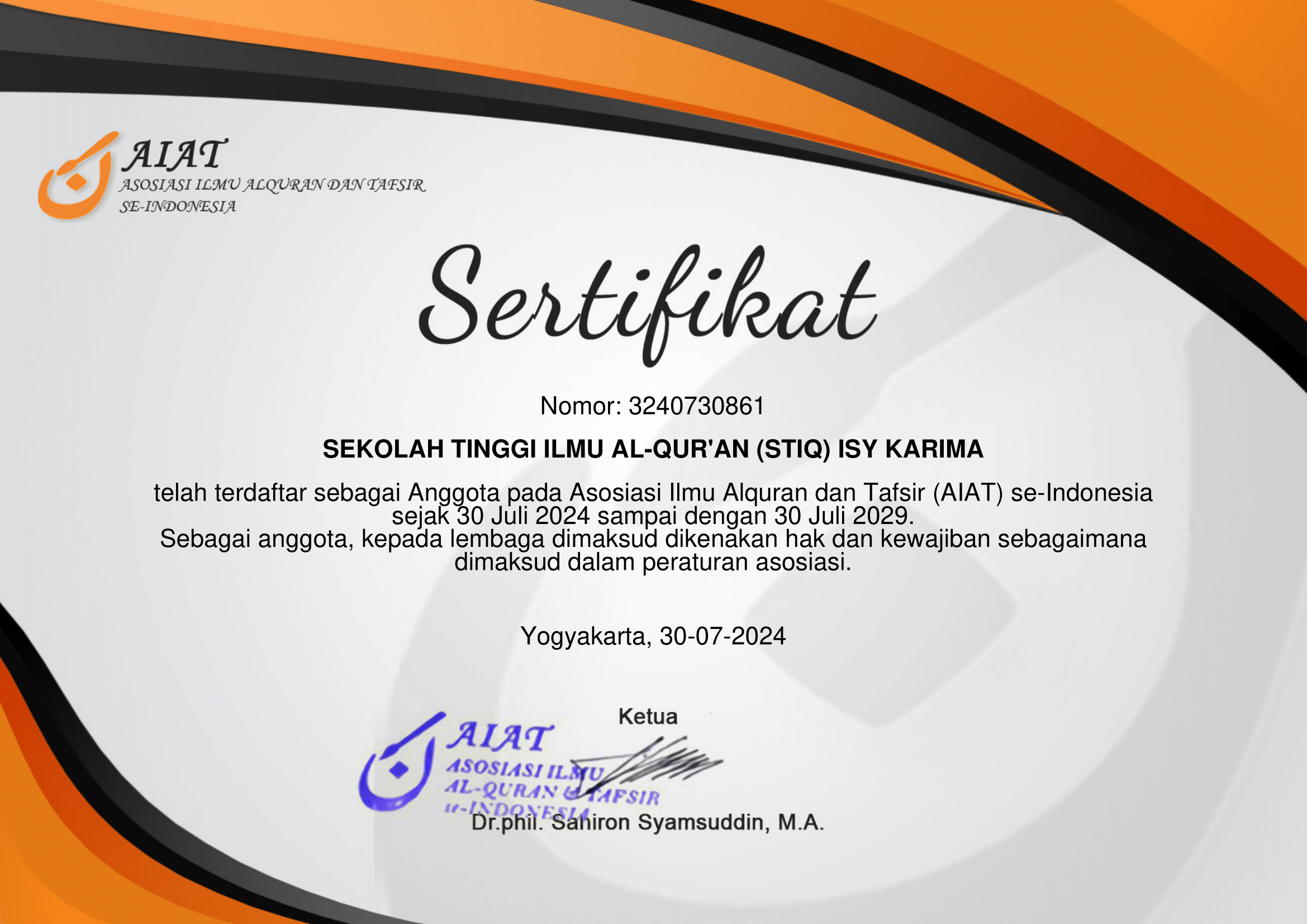Konsep Mahar dalam Surah An-Nisa Ayat 4: Pendekatan Maqasid Al-Qur’an dalam Perspektif Rasyid Ridha
DOI:
https://doi.org/10.58438/alkarima.v9i1.303Keywords:
Mahar, Maqasid Al-Qur’an, Rosyid RidhoAbstract
This research is motivated by the attention of researchers to the current dowry problem which according to researchesrs is very irrelevant to sharia recommendation and provisions. Which at the time the dowryis more emphasized on the basis of interest and profit. This type of researchesr uses library researchesr or library researchesr. The data collection method used is the documentation method. Meanwhile, the analytical method used is the maudhui/thematic method, namely examining verses that have the same discussion and then compiling them into a discussion. The result of researchesr conducted by researchesrs on surah an-nisa verse 4 are: according to Rashid Ridha, dowry is something that is given by a man to a woman sincerely without any element of coercion and is an obligation due to marriage. A husband may not take anything from a wife except for the pleasure of a wife. Mahar is something tha is the right of a wife as compentation for the pleasure that wil be felt by a husband after they do the marriage.
Downloads
References
Abdul Khaliq, Abdurrahman, Kado Pernikahan Barokah, cet. II, Yogyakarta: Al-Manar, 2004.
A. Athaillah, Konsep Teologi Rasional Dalam Tafsir Al-Manar, Penerjemah, Sayed Mahdi, Jakarta: Erlangga, 2006.
Best, Jhon W., Metodologi Penelitian Pendidikan, Terjemahan: Sanapiah, Faisal dan Mulyadi Guntur Waseso, 2003.
Departemen Pendidikan Nasional, Kamus Besar Bahasa Indonesia Pusat Bahasa, Jakarta : PT Gramedia Pustaka Utama, 2008, Cet. ke-1, Edisisi ke-4.
Fikriyati, Ulya, Maqasid Al-Qur’an dan Deradikalisasi Penafsiran dalam Konteks Keindonesiaan, Jurnal Studi Keislaman, Vol. 9 No. 1, Madura: Institut Ilmu Keislaman Annuqayah, 2014.
Ghazali, Abdurrahman, Fiqh Munakahat, Jakarta: Kencana, 2006.
Hanbal, Ahmad Ibn, Musnad al-Imam Ahmad ibn Hanbal (Beirut:Dar al-Fikr, t.th.), Jilid 4.
Kementerian Agama RI, Al-Qur’an dan Terjemahan, Jakarta: Lajnah Pentashihan Mushaf Al-Qur’an, 2019
Kharlie, Ahmad Tholabi “Metode Tafsir Muhammad Abduh dan Muhammad Rasyîd Ridhâ dalam Tafsîr Al-Manâr”, Tajdid, Vol. 25, No. 2, 2018.
Kohar, Abd,“Kedudukan dan Hikmah Mahar dalam Perkawinan”. Asas, Vol 8 No.2, Juli 2016
Mukhtar, Kamal, Asas-Asas Hukum Islam Tentang Perkawinan, Jakarta : Bulan Bintang, 1993 Cet. Ke-3.
Oktavia‚ Widya, Tafsir Maqasidi Mahar Ibn ‘Asyur, Skripsi: UIN Syarif Hidayatullah Jakarta, 2020.
Qattan (al), Manna Khalil, Mabahis fi Ulumil Qur’an, Bogor: PT Pustaka Litera Antar Nusa, 2011.
Ridha, Rasyid, Tafsir al-Manar, Mesir: Penerbit Al-Manar, 1349 H, jilid 11
Raisuni, Ahmad, Maqasid Maqasid, Riyad: Maktabah al-Rusyd, 2007.
Shihab, M. Quraish, Membumikan Al-Qur’an , Bandung: Mizan, 1989.
Shuhuf, Muhammad, Mahar dan Problematikanya: Sebuah Telaah Menurut Syari’at Islam.
Shihab, Muhammad Quraish, Studi Kritis Tafsir al-Manâr…,
Sabiq, Al-Sayyid, Fiqh al-Sunnah, Kairo: Dar al-Fath li I‘lam al-‘Arabi, 1999, Jilid 2.
Zuhailiy (al),Wahbah, Tafsir al-Munir fi al-‘Aqa’idah wa Syari’ah wa Manhaj, Juz III, Beirut: Dar al-Fikr al-Mu’ashir, 1991.
Downloads
Published
How to Cite
Issue
Section
License
Copyright (c) 2025 Nafilah Sulfa, Nafilatul Khair

This work is licensed under a Creative Commons Attribution-ShareAlike 4.0 International License.
This work is licensed under a Creative Commons Attribution-ShareAlike 4.0 International License.











